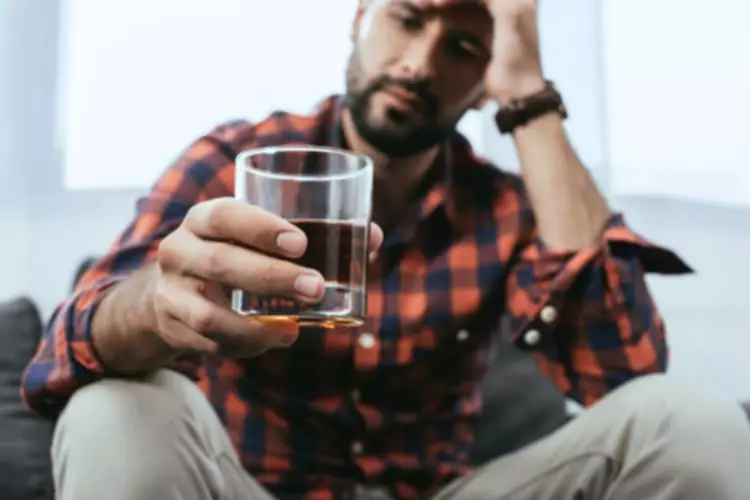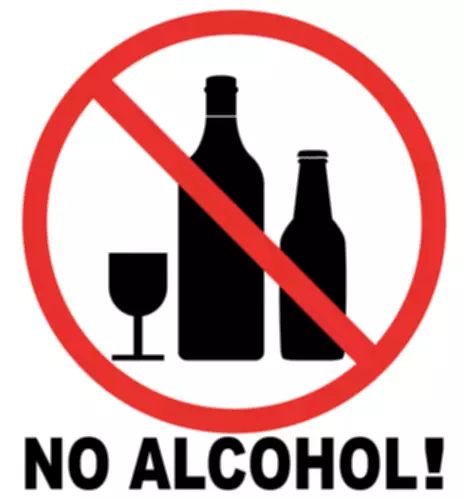
If you have symptoms of an allergy after drinking beer, you should see your doctor. They can help determine if you’re allergic to a specific ingredient in the beer. This will help you avoid that ingredient in other products. If you have any severe or painful symptoms after drinking alcohol, don’t just brush it off as alcohol intolerance. These side effects could be caused by a serious allergy and warrant a visit with your doctor to address your symptoms.
Stuffy Nose
However, it’s important to know whether you have alcohol intolerance because it can put you at greater risk for alcohol-related health conditions. If you’re looking for a way to prevent sneezing when you drink, try making your cocktails with fresh fruit juices instead of using pre-made mixes. This will help reduce the number of histamines in your drink and make it less likely to trigger a sneeze. If you find that certain foods make you sneeze, such as strawberries or shellfish, try avoiding them before you drink.

Everything You Need to Know About a Beer Allergy
If the sinuses become inflamed and swollen, a person may develop sinusitis. Beer allergies and intolerances are different—allergies are an immune response and intolerances are a digestive response. A skin test is the standard diagnostic tool for finding out if someone has allergies. A provider puts tiny amounts of potential allergens on your skin during a skin test. On this plan, you’ll cut a specific food out of your diet to see if your symptoms get better. Then, you’ll try to add the food back in later to see if your symptoms come back.

How does alcohol affect allergies?
If you’re allergic to a specific grain, beer won’t be your only problem. You’ll also experience symptoms when you eat other food products containing that allergen. The good news is that alcohol intolerance isn’t too much of a concern. The bad news is that you can’t really do much about sneezing after drinking alcohol it, or that unwelcome nasal congestion that comes along with it, aside from just not drinking alcohol. People with alcohol intolerance react quickly to consuming alcohol. Two common symptoms are facial flushing, in which the skin on the face quickly turns red, and nasal congestion.
- If you have a stuffy nose but don’t experience other common symptoms, alcohol intolerance may not be the culprit.
- There are several ways to diagnose an alcohol allergy or intolerance.
- Alcohol intolerance means it’s difficult for your body to break down (metabolize) alcohol.
- Feeling sick after just one drink could also mean that you’ve developed an allergy to something in that drink.
Sneezing is a symptom of many conditions, from allergies to infections. But most of the time, it just means your body is protecting itself. Those who have an allergy or intolerance to wine should follow the directions of their healthcare provider and may be asked to refrain from drinking red wine. In some cases, a healthcare provider may identify an allergy to a specific ingredient or compound in wine, like grapes. An allergic reaction to food usually happens within a couple of hours. A food allergy is your immune system’s response to a food protein that the body sees as harmful.
Drinking alcohol can also cause a gustatory rhinitis flare-up. Stress and other strong emotions can even trigger sneezing. When you experience stress, your body releases hormones and chemicals, including histamine. Elevated histamine levels can result in sneezing and other allergy symptoms like hives and itchy eyes. If you suspect you have an allergy to wine, make an appointment with a healthcare provider.
- So you may need skin or blood tests to find out if you have allergic rhinitis.
- This doesn’t make you a bad person, but it does make it more urgent that you look for help to change your habits and get your relationships back on track.
- Some people believe that a reaction to histamine causes symptoms after drinking red wine.
- People with aspirin-exacerbated respiratory disease (AERD) are also more likely to have alcohol intolerance.
- It usually happens when things like dust, pollen or viruses irritate the mucus membranes that line your nose and throat.
Bioengineered parasites may one day deliver meds into your brain
True alcohol allergy (versus an allergic reaction to ingredients in alcoholic drinks) is very rare. If you’re allergic to alcohol, you may experience hives, itching, swelling, difficulty breathing, and wheezing. If you experience these symptoms after drinking alcohol, you must see a doctor as you may need to be treated for an allergy.

If you find that straight spirits make you sneeze, try diluting them with water or soda before you drink them. This will reduce the alcohol in the drink and make it less likely to trigger a sneeze. The most likely explanation is that alcohol dilates blood vessels in the nose, which can cause irritation and lead to sneezing.
- It refers to a relatively common but poorly understood condition that causes people to sneeze uncontrollably after a large meal.
- They may experience a variety of symptoms on the skin, in the respiratory system, and in the digestive system.
- If you and alcohol don’t mix well, consider whether you’ve experienced the following alcohol intolerance symptoms.
Is it okay to drink alcohol while on Zoloft?
Allergic reactions that involve hives, wheezing, and chest pain can occur almost immediately. They should be considered severe and potentially life-threatening. If you experience these symptoms, you should seek immediate medical attention. What’s more concerning, however, is that some medications can lead to uncomfortable (even dangerous) side effects when combined with alcohol. In addition, various ingredients found in alcoholic beverages have the potential to trigger an allergic reaction in some people. Those who notice an increase in their asthma symptoms after drinking alcoholic beverages, especially wine, might be reacting to potassium metabisulfite, a common preservative.